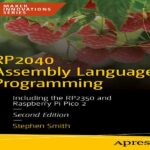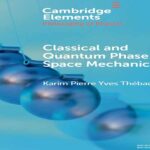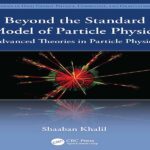در اصول كافی ج 1 ص 131 آمده است، كه این سخنرانی در شهر كوفه ایراد شد و پیرامون توحید و خداشناسی است كه اصول علمی آن در هیچ خطبه ای یافت نمیشود.
كسی كه كیفیتی برای خدا قائل شد، یگانگی او را انكار كرده، و آن كس كه همانندی برای او قرار داد، به حقیقت خدا نرسیده است. كسی كه خدا را به چیزی تشبیه كرد، به مقصد نرسید. آن كس كه به او اشاره كند یا در وَهم آورد، خدا را بینیاز ندانسته است. هرچه كه ذاتش شناخته شده باشد، آفریده است، و آنچه در هستی به دیگری متّكی باشد، دارای آفریننده است. سازنده ای غیر محتاج به ابزار، اندازه گیرنده ای بی نیاز از فكر و اندیشه، و بی نیاز از یاری دیگران است. با زمانها همراه نبوده،و از ابزار و وسایل كمك نگرفته است. هستی او برتر از زمان، و وجود او بر نیستی مقدّم است، و ازلیّت او را آغازی نیست. با پدید آوردن حواس، روشن میشود كه حواسّی ندارد، و با آفرینش اشیاء متضاد، ثابت میشود كه دارای ضدّی نیست، و با هماهنگ كردن اشیاء دانسته میشود كه همانندی ندارد. خدایی كه روشنی را با تاریكی، آشكار را با نهان، خشكی را با تری، گرمی را با سردی، ضدّ هم قرار داد و عناصر متضاد را با هم تركیب و هماهنگ كرد، و بین موجودات ضدّهم، وحدت ایجاد كرد، آنها را كه با هم دور بودند نزدیك كرد، و بین آنها كه با هم نزدیك بودند فاصله انداخت. خدایی كه حدّی ندارد، و با شماره محاسبه نمی گردد، كه همانا ابزار و آلات، دلیل محدود بودن خویشند و به همانند خود اشاره میشوند. اینكه می گوییم موجودات از فلان زمان پدید آمده اند، پس قدیم نمی توانند باشند و حادثند، و اینكه می گوییم حتماً پدید آمدند، اَزَلی بودن آنها رد میشود، و اینكه میگوییم اگر چنین بودند كامل می شدند، پس در تمام جهات كامل نیستند. خدا با خلق پدیدهها در برابر عقلها جلوه كرد، و از مشاهده چشمها برتر و والاتر است، و حركت و سكون در او راه ندارد، زیرا او خود حركت و سكون را آفرید، چگونه ممكن است آنچه را كه خود آفریده در او اثر بگذارد؟ یا خود از پدیده های خویش اثر پذیرد؟ اگر چنین شود، ذاتش چون دیگر پدیدهها تغییر میكند، واصل وجودش تجزیه می پذیرد،و دیگر اَزَلی نمیتواند باشد، و هنگامی كه )به فرض محال( آغازی برای او تصوّر شود، پس سرآمدی نیز خواهد داشت، و این آغاز و انجام، دلیل روشن نقص، و نقصان و ضعف دلیل مخلوق بودن، و نیاز به خالقی دیگر داشتن است. پس نمیتواند آفریدگار همه هستی باشد، و از صفات پروردگار كه «هیچ چیز در او مؤثر نیست، و نابودی و تغییر و پنهان شدن در او راه ندارد » خارج شود. خدا فرزندی ندارد تا فرزند دیگری باشد، و زاده نشده تا محدود به حدودی گردد، و برتر است از آن كه پسرانی داشته باشد، و منزّه است كه با زنانی ازدواج كند. اندیشه ها به او نمی رسند تا اندازه ای برای خدا تصوّر كنند، و فكرهای تیزبین نمی توانند او را درك كنند، تا صورتی از او تصوّر نمایند. حواس از احساس كردن او عاجز، و دستها از لمس كردن او ناتوان است و تغییر و دگرگونی در او راه ندارد، و گذشت زمان تأثیری در او نمیگذارد. گذران روز و شب او را سالخورده نسازد، و روشنایی و تاریكی در او اثر ندارد. خدا با هیچ یك از اجزاء و جوارح و اعضاء و اندام، و نه با عَرَضی از اَعراض، و نه با دگرگونیها و تجزیه، وصف نمی گردد. برای او اندازه و نهایتی وجود ندارد، و نیستی و سرآمدی نخواهد داشت؛ چیزی او را در خود نمی گنجاند كه بالا و پایینش ببرد،و نه چیزی او را حمل می كند كه كج یا راست نگه دارد؛ نه در درون اشیاء قرار دارد و نه بیرون آن؛ حرف میزند نه با زبان و كام و دهان؛ می شنود نه با سوراخهای گوش و اعضاء شنوایی؛ سخن می گوید نه با به كار گرفتن الفاظ در بیان؛ حفظ می كند نه با رنج به خاطر سپردن؛ میخواهد نه با به كار گیری اندیشه؛ دوست دارد و خشنود می شود نه از راه دلسوزی؛ دشمن می دارد و به خشم می آید نه از روی رنج و نگرانی. به هرچه اراده كند، می فرماید «باش »، پدید میآید نه با صوتی كه در گوشها نشیند، و نه فریادی كه شنیده شود، بلكه سخن خدای سبحان همان كاری است كه ایجاد می كند. پیش از او چیزی وجود نداشته وگرنه خدای دیگری می بود. نمی شود گفت: «خدا نبود و پدید آمد » كه در آن صورت صفات پدیدهها را پیدا میكند، و نمیشود گفت: «بین خدا و پدیدهها جدایی است » و «خدا بر پدیدهها برتری دارد » تا سازنده و ساخته شده، همانند تصوّر شوند، و خالق و پدید آمده به یكدیگر تشبیه گردند. مخلوقات را بدون استفاده از طرح و الگوی دیگران آفرید، و در آفرینش پدیده ها از هیچ كسی یاری نگرفت. زمین را آفرید و آن را برپا نگهداشت، بدون آن كه مشغولش سازد، و در حركت و بی قراری، آن را نظم و اعتدال بخشید، و بدون ستونی آن را به پاداشت، و بدون استوانهها بالایش برد، و از كجی و فرو ریختن نگهداشت و از سقوط و درهم شكافتن حفظ كرد. میخ های زمین را محكم، و كوههای آن را استوار، و چشمه هایش را جاری، و درّهها را ایجاد كرد. آنچه بنا كرده به سُستی نگرایید، و آنچه را توانا كرد ناتوان نشد. خدا با بزرگی و قدرت بر آفریده ها حاكم است، و با علم و آگاهی ازباطن و درونشان باخبر است، و با جلال و عزّت خود از همه برتر و بالاتر است. چیزی از فرمان او سرپیچی نمی كند، و چیزی قدرت مخالفت با او را ندارد، تا بر او پیروز گردد، و شتابنده ای از او توان گریختن ندارد كه بر او پیشی گیرد، و به سرمای هداری نیاز ندارد تا او را روزی دهد. همه در برابر او فروتنند، و در برابر عظمت او ذلیل و خوارند. از قدرت و حكومت او به سوی دیگری نمی توان گریخت كه از سود و زیانش در امان ماند. همتایی ندارد تا با او برابری كند، و او را همانندی نیست كه شبیه او باشد. اوست نابود كننده پدیدهها پس از آفرینش، كه گویا موجودی نبود. نابودی جهان پس از پدید آمدن، شگفت آورتر از آفرینش آغازین آن نیست. چگونه محال است در صورتی كه اگر همه جانداران جهان، از پرندگان و چهارپایان، آنچه در آغل است و آنچه در بیابان سرگرم چراست، از تمام نژادها و جنسها، درس نخوانده و انسانهای زیرك، گرد هم آیند تا پشّه ای را بیافرینند، توان پدید آوردن آن را ندارند، و راه پیدایش آن را نمیشناسند، كه عقل هایشان سرگردان و در شناخت آن حیران می مانند، و نیروی آنها سُست و به پایان می رسد، و رانده و درمانده باز میگردند، آنگاه اعتراف به شكست می كنند، و اقرار دارند كه نمیتوانند پشّه ای بیافرینند و از نابود ساختنش ناتوانند!. و همانا پس از نابودی جهان، تنها خدای سبحان باقی می ماند، تنهای تنها كه چیزی با او نیست، آن گونه كه قبل از آفرینش جهان چیزی با او نبود، نه زمانی و نه مكانی، بی وقت و بی زمان. در آن هنگام مهل تها به سر آید، سالها و ساعتها سپری شود و چیزی جز خدای یگانه قهّار باقی نمی ماند كه بازگشت همه چیز به سوی اوست. پدیدهها، چنان كه در آغاز آفریده شدن قدرتی نداشتند، به هنگام نابودی نیز قدرت مخالفتی ندارند، زیرا اگر میتوانستند پایدار می ماندند. آفرینش چیزی برای خدا رنج آور نبوده و در آفرینش موجودات دچار فرسودگی و ناتوانی نشده است.موجودات را برای استحكام حكومتش نیافریده، و برای ترس از كمبود و نقصان پدید نیاورده است. آفرینش مخلوقات نه برای یاری خواستن در برابر همتایی بود كه ممكن است بر او غلبه یابد، و نه برای پرهیز از دشمنی بود كه به او هجوم آورد، و نه برای طولانی شدن دوران حكومت، و نه برای پیروز شدن بر شریك و همتایی مخالف، و نه برای رفع تنهایی. سپس، همه موجودات را نابود میكند، نه برای خستگی از اداره آنها، و نه برای آسایش و استراحت، و نه به خاطر رنج و سنگینی كه برای او داشتند، و نه برای طولانی شدن ملال آور زندگیشان، بلكه خداوند با لطف خود موجودات را اداره می فرماید، و با فرمان خود همه را برپا می دارد، و با قدرت خود همه را استوار میكند. سپس بدون آن كه نیازی داشته باشد، بار دیگر همه را باز میگرداند، نه برای اینكه از آنها كمكی بگیرد، و نه برای رها شدن از تنهایی تا با آنها مأنوس شود، ونه آن كه تجربه ای به دست آورد، و نه برای آن كه از فقر و نیاز به توانگری رسد، و یا از ذلّت و خواری به عزّت و قدرت راه یابد.
About the Oneness of Allah.
This sermon contains principles of knowledge which no other sermon contains He who assigns to Him (different) conditions does not believe in His oneness, nor does he who likens Him grasp His reality. He who illustrates Him does not signify Him. He who points at Him and imagines Him does not mean Him. Everything that is known through itself has been created, and everything that exists by virtue of other things is the effect (of a cause). He works but not with the help of instruments. He fixes measures but not with the activity of thinking. He is rich but not by acquisition. Times do not keep company with Him, and implements do not help Him. His Being precedes times. His Existence precedes non-existence and His eternity precedes beginning. By His creating the senses it is known that He has no senses. By the contraries in various matters it is known that He has no contrary, and by the similarity between things it is known that there is nothing similar to Him. He has made light the contrary of darkness, brightness that of gloom, dryness that of moisture and heat that of cold. He produces affection among inimical things. He fuses together diverse things, brings near remote things and separates things which are joined together. He is not confined by limits, nor counted by numbers. Material parts can surround things of their own kind, and organs can point out things similar to themselves. The word(1) “mundhu” (i.e. since) disproves their eternity, the word “qad” (that denotes nearness of time of occurrence), disproves their being from ever and the word “lawla” (if it were not) keep them remote from perfection. Through them the Creator manifests Himself to the intelligence, and through them He is guarded from the sight of the eyes. Stillness and motion do not occur in Him, and how can that thing occur in Him which He has Himself made to occur, and how can a thing revert to Him which He first created, and how can a thing appear in Him which He first brought to appearance. If it had not been so, His Self would have become subject to diversity, His Being would have become divisible (into parts), and His reality would have been prevented from being deemed Eternal. If there was a front to Him there would have been a rear also for Him . He would need completing only if shortage befell Him. In that case signs of the created would appear in Him, and He would become a sign (leading to other objects) instead of signs leading to Him. Through the might of His abstention (from affectedness) He is far above being affected by things which effect others. He is that which does not change or vanish. The process of setting does not behove Him. He has not begotten any one lest He be regarded as having been born. He has not been begotten otherwise He would be contained within limits. He is too High to have sons. He is too purified to contact women. Imagination cannot reach Him so as to assign Him quantity. Understanding cannot think of Him so as to give him shape. Senses do not perceive Him so as to feel Him. Hands cannot touch Him so as to rub against Him. He does not change into any condition. He does not pass from one state to another. Nights and days do not turn Him old. Light and darkness do not alter Him. It cannot be said that He has a limit or extremity, or end or termination; nor do things control Him so as to raise Him or lower Him, nor does anything carry Him so as to bend Him or keep Him erect. He is not inside things nor outside them. He conveys news, but not with the tongue or voice. He listens, but not with the holes of the ears or the organs of hearing. He says, but does not utter words. He remembers, but does not memorise. He determines, but not by exercising His mind. He loves and approves without any sentimentality (of heart). He hates and feels angry without any painstaking. When He intends to create someone He says “Be” and there he is, but not through a voice that strikes (the ears) is that call heard. His speech is an act of His creation. His like never existed before this. If had been eternal it would have been the second god. It cannot be said that He came into being after He had not been in existence because in that case the attributes of the created things would be assigned to Him and there would remain no difference between them and Him, and He would have no distinction over them. Thus, the Creator and the created would become equal and the initiator and the initiated would be on the same level. He created (the whole of) creation without any example made by someone else, and He did not secure the assistance of any one out of His creation for creating it. He created the earth and suspended it without being busy, retained it without support, made it stand without legs, raised it without pillars, protected it against bendings and curvings and defended it against crumbling and splitting (into parts). He fixed mountains on it like stumps, solidified its rocks, caused its streams to flow and opened wide its valleys. Whatever He made did not suffer from any flow, and whatever He strengthened did not show any weakness. He manifests Himself over the earth with His authority and greatness. He is aware of its inside through his knowledge and understanding. He has power over every thing in the earth by virtue of His sublimity and dignity. Nothing from the earth that he may ask for defies Him, nor does it oppose Him so as to overpower Him. No swift-footed creature can run away from Him so as to surpass Him. He is not needy towards any possessing person so that he should feed Him. All things bow to Him and are humble before His greatness. They cannot flee away from His authority to someone else in order to escape His benefit or His harm. There is no parallel for Him who may match Him and no one like Him so as to equal Him. He will destroy the earth after its existence, till all that exists on it will become non-existent. But the extinction of the world after its creation is no stranger than its first formation and invention. How could it be? Even if all the animals of the earth, whether birds or beasts, stabled cattle or pasturing ones, of different origins and species, dull people and sagacious men — all jointly try to create (even) a mosquito they are not able to bring it into being and do not understand what is the way to its creation. Their wits are bewildered and wandering. Their powers fall short and fail, and return disappointed and tired, knowing that they are defeated and admitting their inability to produce it, also realising that they are too weak (even) to destroy it. Surely, after the extinction of the world, Allah the Glorified will remain alone with nothing else beside Him. He will be, after its extinction, as He was before its production: without time or place or moment or period. At this moment, period and time will not exist, and years and hours will disappear. There will be nothing except Allah, the One, the All-powerful. To Him is the return of all matters. Its initial creation was not in its power; and the prevention of its extinction was (also) not in its power. If it had the power to prevent it, it would have existed for ever. When He made anything of the world, the making of it did not cause Him any difficulty, and the creation of anything which He created and formed did not fatigue Him. He did not create it to heighten His authority nor for fear of loss or harm, nor to seek its help against an overwhelming foe, nor to guard against any avenging opponent with its help, nor for the extension of His domain by its help, nor for boasting (over largeness of His possession) against a partner, nor because He felt lonely and desired to seek its company. Then after its creation He will destroy it, but not because any worry has overcome Him in its upkeep and administration, nor for any pleasure that will accrue to Him, nor for the cumbrousness of anything over Him. The length of its life does not weary Him so as to induce Him to its quick destruction. But Allah, the Glorified, has maintained it with His kindness, kept it intact with His command and perfected it with His power. Then after its destruction, He will resuscitate it, but not for any need of His own towards it, nor to seek the assistance of any of its things against it, nor to change over from the condition of loneliness to that of company, nor from the condition of ignorance and blindness to that of knowledge and search, nor from paucity and need towards needlessness and plenty, nor from disgrace and lowliness towards honour and prestige. (1). The meaning is that the sense for which the words “mundhu” , “qad” and “lawla” have been formed is opposed to the attributes of “Ever”, “Eternal” and “Perfect”. Therefore, their application to anything would prove that they have come into existence from non-existence and are imperfect. For example, “mundhu” is used to denote time as is “qad wujida mundu kadha” (this thing is found since so-and-so). Here a time limit has been stated, and anything for which a limit of time can be described cannot exist from ever or for ever. The word “qad” shows (indicating the present perfect tense) the immediate past. This sense also can apply to a thing which is limited in time. The word “lawla” is used to denote the negation of something in another thing, as “ma ahsanahu wa akmalahu lawla annahu kadha” (how handsome and perfect it would be if it were so-and-so). Therefore, the thing for which this word is used would be in need of others in handsomeness and perfection, and would remain deficient by itself.
فایل صوتی فارسی مربوط به این خطبه را از لینک ذیل دانلود نمایید:
Download: Nahjul-Balagah-Sermon-186



































نظرات کاربران